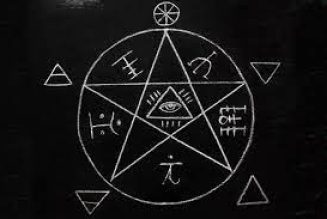The Lychgate (lichgate, lyke gate or Wych gate), is seen as a liminal space between consecrated + unconcegrated grounds. It’s the last place a body will rest before they pass from this world to the next. Bodies would be sheltered under here, away from the elements + kept watch over by men (wooden seating would have been placed within), until their funeral, usually with a sheet covering them as coffins weren’t afforded commonly.
In folk practices, these are the spaces that we leave our offerings prior to working with the cemetery, paying your toll if you will. Coins would be left within the Lychgate or at the first Yew tree upon entering. Although in modern times, Lychgates aren’t as common, so you would leave the coins at the entrance.
In the cemetery side of the Lychgate, the spirit of the human, was said to be met by the guardian of the burial ground. Now this guardian could be the first or last person who was buried in this particular place (depending on region as this can vary) or could be what’s best describe as a hell hound (dogs were buried in the cemeteries, to take over from human spirits having to be the guardian of burial ground and some believe the reaper would meet you there.
Lyke-gates were common practice throughout the UK and would be the ending point to the corpse/coffin road.
On a practical level, Lychgates were shelter for the body that had been carried from the home to the graveyard. The gate gave shelter from the weather + with men watching over, would stop attempts of grave robbers stealing from the body, until the priest was to conduct the funeral.

